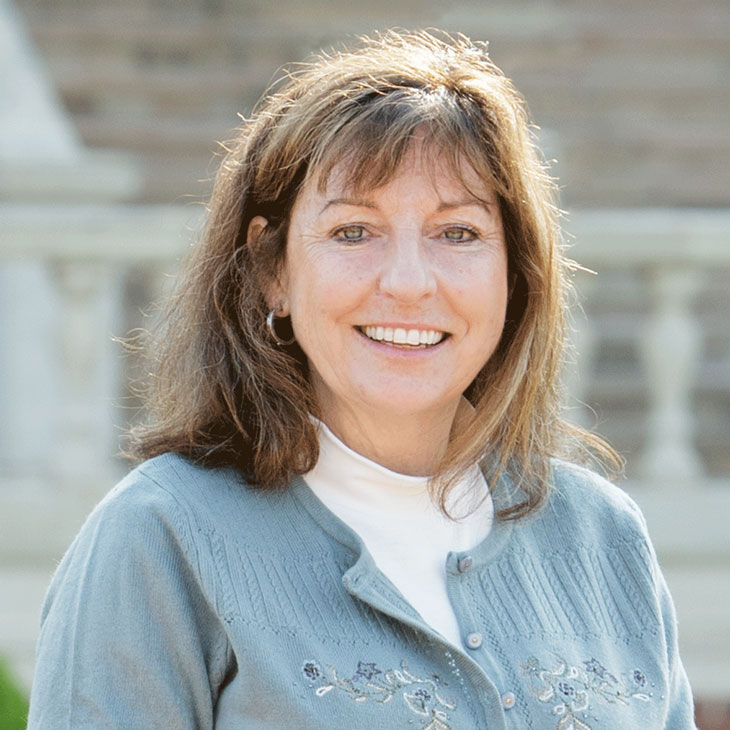
Vet Med Faces of Research: Dr. Dianne McFarlane
Tuesday, April 6, 2021
Dr. Dianne McFarlane has spent the better part of 20 years researching the impact of aging in animals and age-related disease. A veterinarian, diplomate of the American College of Veterinary Internal Medicine and professor and holder of the Ricks-Rapp Professorship in Musculoskeletal Research in the Department of Physiological Sciences at Oklahoma State University’s College of Veterinary Medicine, McFarlane specifically focuses on equine pituitary pars intermediate dysfunction or PPID.
“PPID is a fairly common disease of old horses that is a hormonal dysfunction,” said McFarlane. “The most obvious sign is that the horses don’t shed out well. You will see old fuzzy horses out in the pasture; that’s a horse with PPID. What’s more concerning is that because their hormones are dysregulated, they are immunosuppressed so they can get diseases, particularly bacterial diseases more commonly. Because they are older horses, they often have problems with their teeth, which can lead to infections because they have both an old mouth and an immunosuppressive disease. PPID can worsen other problems as well. For example, if a horse founders or has laminitis and it has PPID, it’s going to be much worse for the horse. PPID horses have trouble thermo-regulating. A brood mare will have trouble with fertility. Hormones affect so much of the body that when you dysregulate them and they are not being appropriately regulated, you impact many different factors.”
McFarlane said that even though older horses are not of great economic value, there is great sentimental value in those horses.
“Quality of life is really impacted by PPID. If we can control the horses so that they don’t develop disease, as they age, they’re going to have a much higher quality of life. What we’ve learned in our horses also has implications for people and human medicine,” she added. “PPID is a neurodegenerative disease. The hope is that as we learn what causes PPID and some of the environmental or genetic factors that predispose horses to developing it, that may have some benefit in understanding neurodegeneration in people.”
McFarlane does lab bench research as well as animal side research and says her work requires patience.
“The answers come quite slowly. What I find very exciting is when we come up with an answer to a question that has absolute clinical importance. For example, we have made some progress in the diagnosis of PPID and that is used every day in clinical practice. I think it’s important to recognize that we can do a really great job with our older animals. Through our research, we have learned early identification of disease in our older horses and preventative measures we can take that really make the quality of life better for our aged animals. Success, to me, is being able to take what we’ve learned in the lab and go to a conference, either for the clients who own horses or for the veterinarians caring for those animals, and be able to present something that’s useful, that is actually going to help clinical practice.
“I’ve really had a great career. I’m pleased that I’ve been able to contribute to the science. You have to be patient to do bench side research because the answers don’t come every day but over 20 years, I think we have made a difference. I hope that there are people who have older horses who have benefitted from what we’ve done in our lab here at Oklahoma State University.”
Vet Med Faces of Research is a monthly series designed to inform the public about the impact of the numerous studies being conducted at Oklahoma State University’s College of Veterinary Medicine. Advancing knowledge and understanding for the benefit of the lives and livelihoods of the people of Oklahoma is a critical element of OSU’s land-grant mission. If you would like to support research at the college, please contact Ashley Hesser, assistant director of development with the OSU Foundation, at 405-385-0715 or ahesser@osugiving.com.
